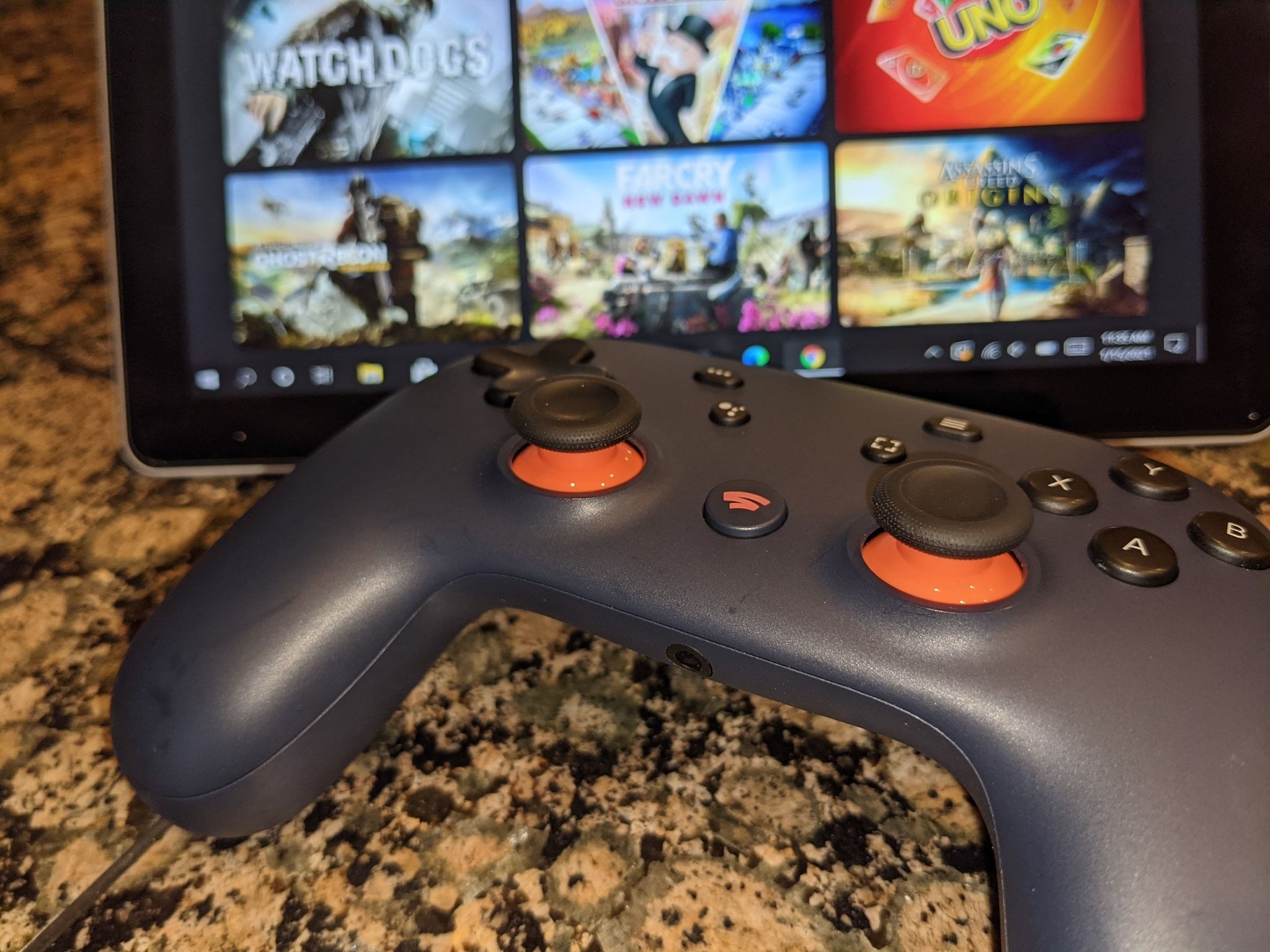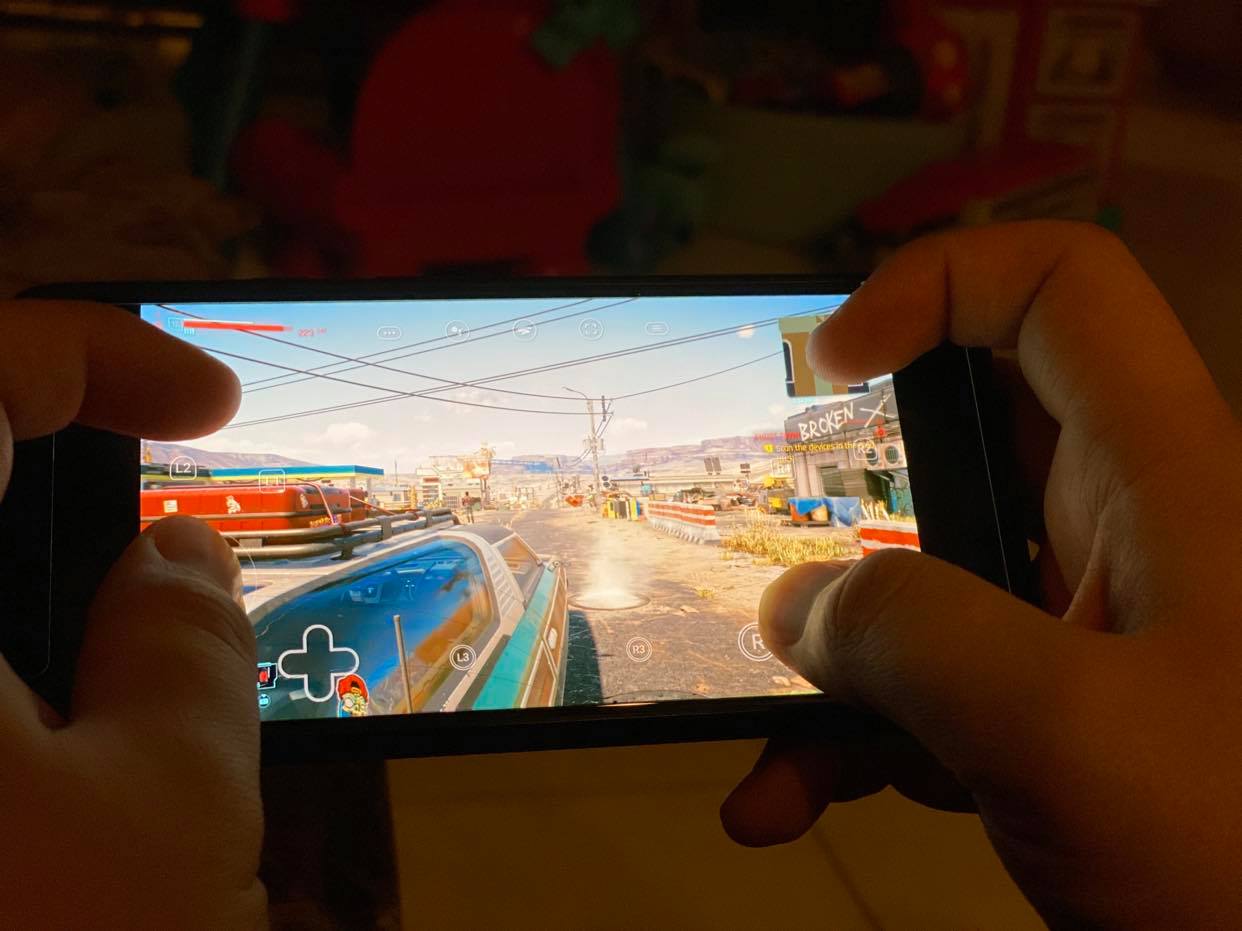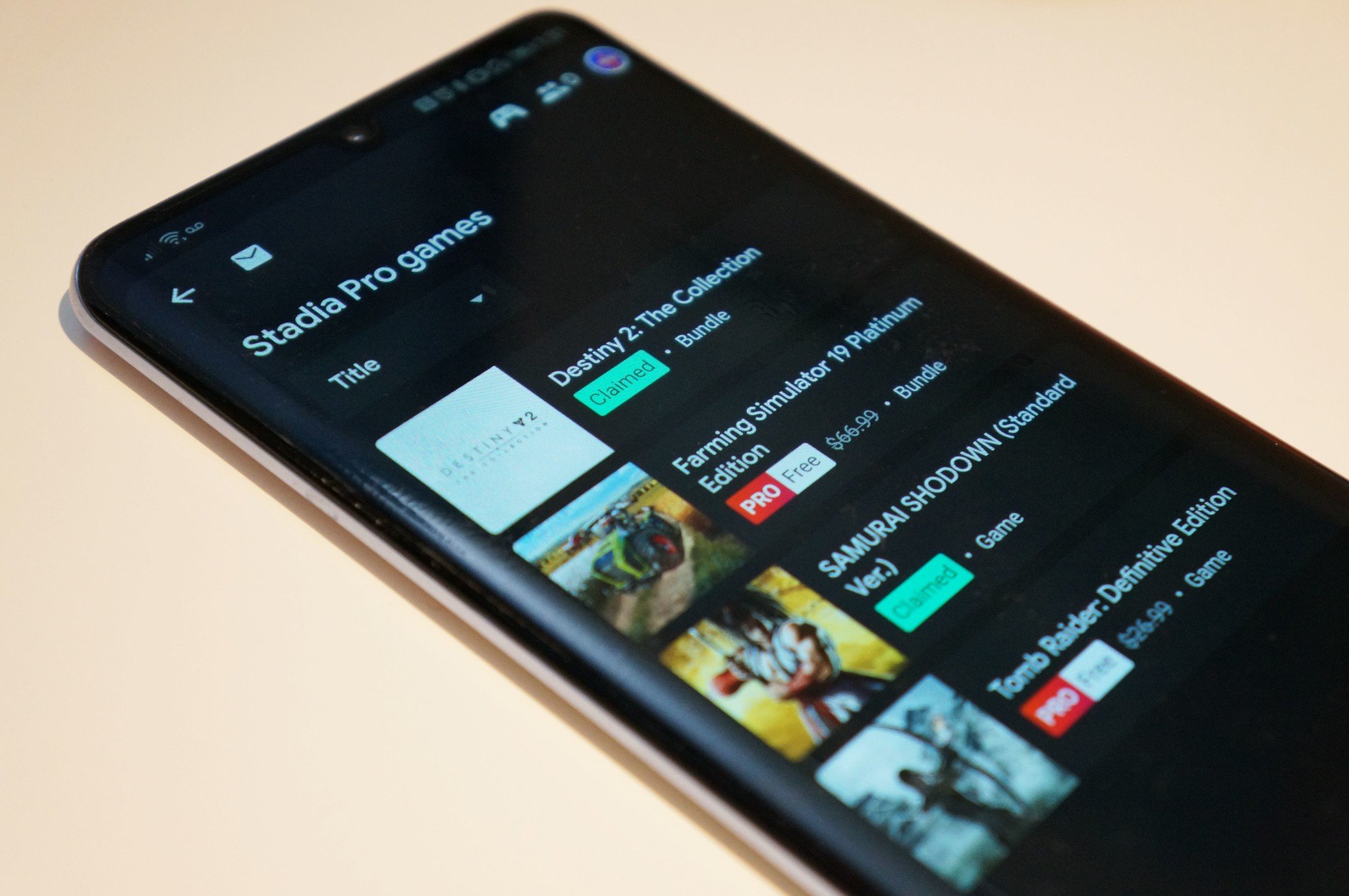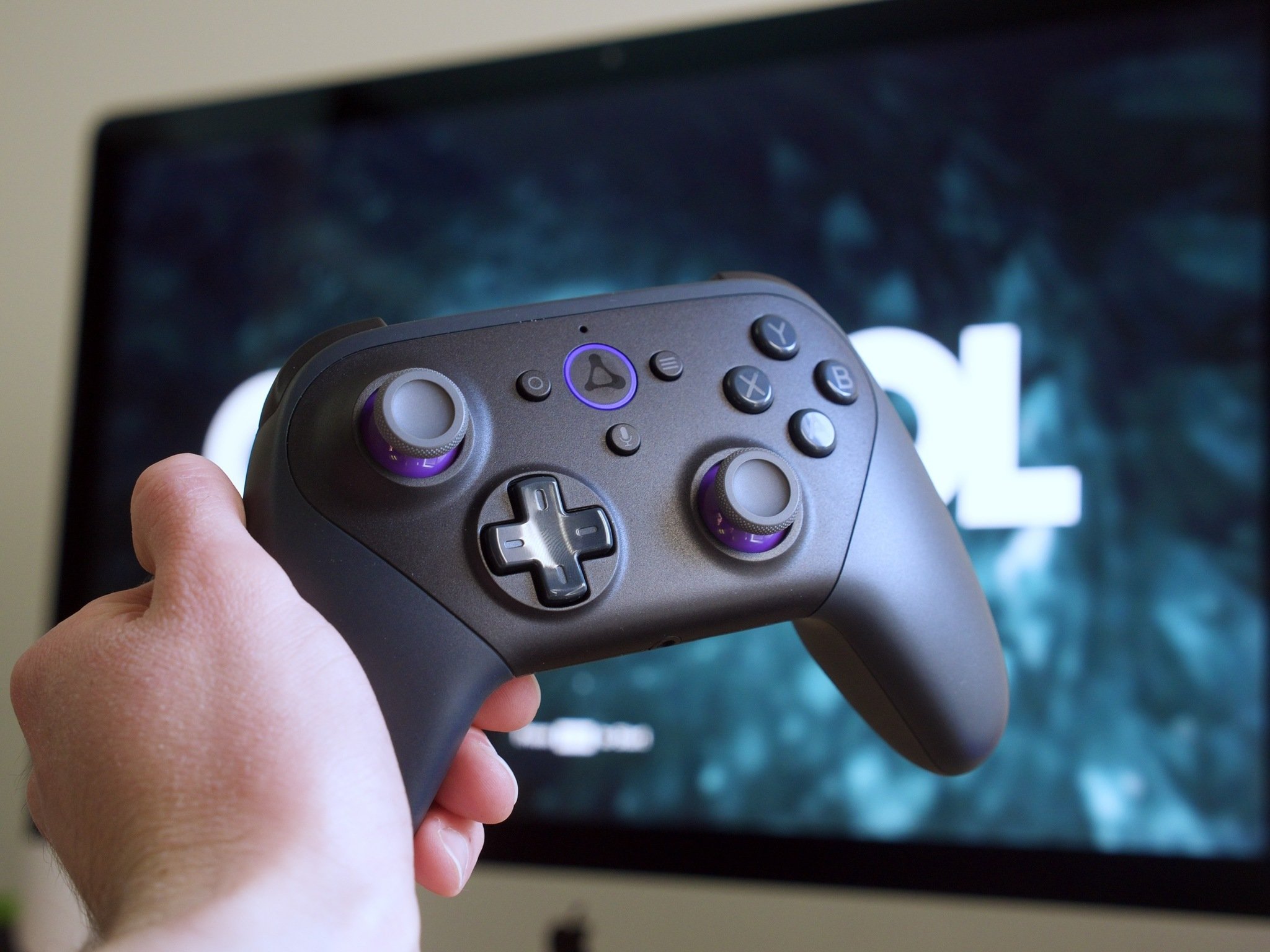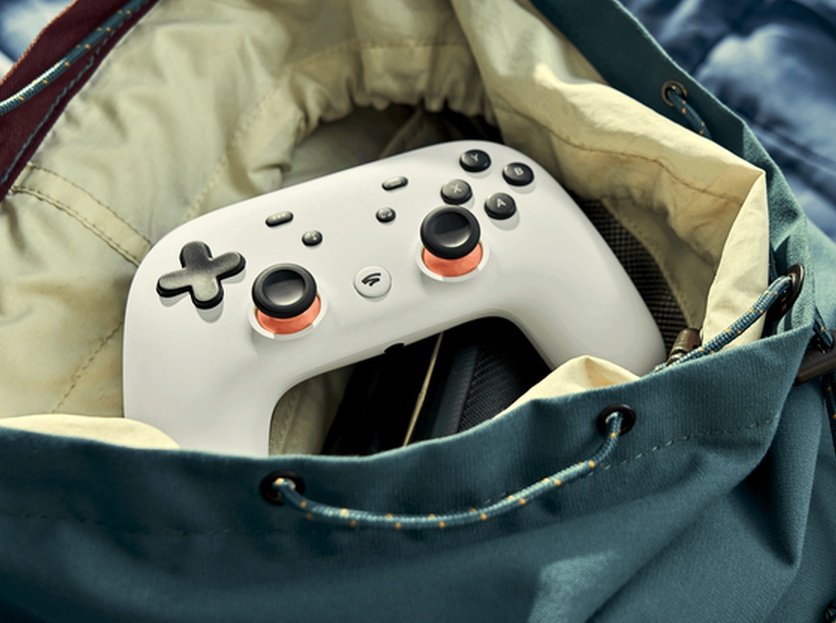- Get link
- X
- Other Apps
- Get link
- X
- Other Apps
After over a year on the market, Google Stadia is finally starting to prove itself as a legitimate gaming platform.
Despite the fact that I was an early adopter of Google Stadia and pre-ordered the Founder's Edition the same day it was revealed, it would be a stretch to say I was "happy" with the platform over the first eight or so months. Not only was it lacking many of the kinds of games I actually wanted to play, but it was missing features and just felt incomplete. It was as if they were charging me to beta test the product after suckering me in with the appealing marketing messages.
And after using Stadia for over a year, I feel even more strongly about those first eight months. Google was wrong to launch Stadia the way that it did, in the state that it did, and I think it significantly harmed the reputation of not only Stadia but cloud gaming services as a whole.
After all that time though, roughly 13 months later, I'm here to say that Stadia is finally worth it. You can access the platform on virtually any of your devices, from your TV and PC to your phone and tablet, including both Android and iOS, and the library is huge. Exciting exclusive features like State Share have arrived and Ubisoft+ offers a slew of AAA games for a low subscription fee. Some of the best Stadia games include the likes of Cyberpunk 2077 — which runs better than it does on PS4 and Xbox One — the Madden family of games, plus Destiny 2 is free for anyone even without Pro. Not to mention big titles like Baldur's Gate 3 and Hitman 3 are starting to release on Stadia on the same date as other platforms. It's an exciting and very promising time right now for Stadia.
There are still issues worth discussing and competition is certainly starting to heat up, but as it stands Stadia is actually good now — if your internet can handle it.
At a glance
Google Stadia Premiere Edition
Bottom line: After over a year of updates and new game releases, I'm confident in saying that Stadia is worth recommending to just about anyone that has good enough internet. While it's still missing some obvious features and the library is lacking some expected titles, it's truly come into its own as a platform and has shown its potential over the last few months in a big way. The technology absolutely works as-advertised and there's great value in what it can offer.
Pros:
- Streaming games instantly just works
- Next-to-no lag on good internet
- Cross-platform compatibility
- Large and growing library
- Great value for Stadia Pro
Cons:
- Some smaller features are still missing
- Lots of games are still missing
- Lack of communication on updates
Stadia February 2021 review What I like
Back near launch, I had occasional disconnect issues and stuttery gameplay every now and then, but nowadays that's all but gone, especially when playing on Chromecast Ultra with a wired connection. The ghosts of OnLive's past are probably smiling down from The Cloud to see that Stadia works so well in a world of high-speed internet connections. Even though I've implicitly accepted that streaming movies and TV shows in 4K is now commonplace, I'm still coming to grips with the fact that I can actually stream a game in 4K with little to no input latency at all. I'm not exaggerating when I say it honestly feels like magic.
Without a doubt the best way to enjoy Stadia is on Chromecast Ultra.
As I write this, I've got a 596Mbps download speed, 17Mbps upload speed, and 14ms of ping on Comcast XFINITY. Google recommends at least 10Mbps download speed for 720p streaming, 20Mbps download speed for 1080p streaming, and at least 35Mbps download speed for 4K streaming. The fact that Stadia works well for me is most definitely a direct result of my fast internet without a data cap, so your mileage may vary. Luckily, you can try Stadia for free and find out if it works well for you.
The second best part about Stadia that was true before and is even more true now is just how well it works across all devices. When I'm playing just to focus on a game or for leisure, I always choose Chromecast. Without a doubt, the best way to enjoy Stadia is on the Chromecast Ultra, which has the most consistently high-quality experience. Using a PC browser window is next on that list. I prefer PC when capturing footage or streaming because it's easier to interface with software that way, but unless I use the free Stadia+ browser extension, getting clips footage is a chore. My monitor is 1440p (not 4K like my TV) so I need to use the third-party extension to force the resolution to be in line with my monitor. Stadia, by default, inexplicably only includes 720p, 1080p, or 4K.
Stadia has an actually decent library of games now, too. I still use my PC, PS5, and Xbox for exclusives and games that aren't on Stadia, but more and more these days, I'm picking Stadia as my choice for cross-platform releases due to the flexibility across devices. Cyberpunk 2077 was a particular selling point as a game that outperformed its console counterparts and was able to match pace with the PC version in most measurable areas. Obviously, a beefy NVIDIA RTX 3080 would be better than Stadia, but good luck finding one.
Now other recent AAA releases like Madden and Hitman 3 look and play perfectly as well. We're reaching the point where we no longer have to ask, "How does it look and play on Stadia?" and can instead simply ask if the game itself is good or not.
Not to mention there are several games that are arguably better played on Stadia simply due to the flexibility. In Elder Scrolls Online, I can log in on my phone quickly for a minute or two to grab my daily bonus rewards or maybe complete some daily crafting writs using touchscreen controls while in line at the post office. Or I could bang out a level or two in Scott Pilgrim using touchscreen controls if I'm not near a TV or PC. No matter the type of game, Stadia has a way to play it effectively.
Stadia Pro is now an excellent value as well. Just like PlayStation Plus, it offers a large selection of games if you sign up right now — similar to the PS Plus Collection on PS5 — and then continues to add new games each month, but you need to claim them before they leave. Once they're claimed, they're yours to play whenever you want as long as you're subscribed. Sometimes, they also have free play weekends for games that aren't in Pro, such as Madden as of the time of this writing.
Finally, due to the scrappy nature of cloud-based gaming, the Stadia community is a joy to interact with. Everyone I've spoken to online whether it be in a Facebook group, subreddit, YouTube stream, Twitter thread, or something in between, they've all been exceedingly kind and eager to meet another Stadia user. There is a lot of negativity in the gaming community, but Stadia has been a bit of a bright spot as of late.
Stadia February 2021 review What I don't like
Stadia is far from perfect, and it still has plenty of issues to fix and room to grow. First and foremost, I hope Google can figure out a way to further democratize access to the platform. It needs to be in more regions, it needs to have even more options for low-speed connections, and it needs to at least have the perception that it's being taken more seriously.
There is a lot of fear and uncertainty surrounding Stadia due to its horrible launch that Google has already given up and is just biding time before dropping it completely — just like it did Daydream and countless other experiments. Hopefully, that's not the case.
Google needs to speak more openly and more regularly about Stadia's updates and releases.
If someone at Google is reading this right now, the two things I'd like to see improved most are the user interface and transparency in communications. For the interface, add a search bar, include additional sorting options, display prices for Pro games and purchased games, and generally try to emulate Google Play Store, PSN, or the Xbox marketplace. It's inexcusable to still not have a search bar, especially on a Google service.
In terms of transparency, a lot of work needs to be done here. The biggest issue is that there is just no release calendar to speak of whatsoever. No one has any idea when games are releasing until they suddenly appear in the store. It's not uncommon for a publisher to announce a game is coming to Stadia only to then follow it up with six months of silence before suddenly revealing it'll be available tomorrow. This literally just happened with Madden.
Google needs to condense schedules down, combine communication, and deliver a clear message. The Stadia Community Blog does a good job of recapping what's in store for the coming week, but users should have awareness of things more than just a day or two in advance. Not only does it just build consumer confidence to know that things are in fact coming but it's just a smart idea to help build up excitement with marketing campaigns that stretch beyond launch day tweets. It's a major missed opportunity.
Smaller ideas for expansion and improvement are more Google Assistant integration features, the ability to view YouTube videos/streams within Stadia in the app or on Chromecast, streaming from the app or on Chromecast, and so on.
Finally, Stadia needs to keep pushing for more games on the platform. Getting Madden (and soon FIFA) is huge for mainstream audiences, but where is Fortnite? What about Call of Duty, or even just Warzone? Why don't we have Grand Theft Auto Online yet? Those are the kinds of games that could really shine on a platform like Stadia, especially in the case of Warzone which is now pushing nearly 200GB of space on modern game consoles.
Furthermore, what is Stadia Games and Entertainment up to these days? Other than a few indie projects and Journey to the Savage Planet, it feels like we have no idea what's coming for Stadia on the first-party front. It blows my mind that there still isn't a single big first-party exclusive title on Stadia.
Stadia February 2021 review The competition
Stadia is in a tricky spot because consumers expect it to both justify its existence and viability, as well as to provide something unique and different from its competition. The most direct competitor Google has right now is undoubtedly Amazon's new Luna platform, which is still in Early Access as of the time of this writing.
Luna operates as a purely subscription-based service; you cannot buy games on Luna. Instead, you subscribe to a "channel" and gain access to all games in that channel for a monthly fee. Right now there are two channels: Luna+ for $5/mo and Ubisoft+ for $15/mo. The Luna+ channel includes several high-profile games such as Control, Resident Evil 7, and more. Ubisoft+ includes all of the same titles you get on Ubisoft+ for Stadia, plus more like Rainbow Six Siege.
It comes down to a matter of preference: do you want to pay for a subscription-only service, or do you want to be able to buy games outright? Other than that, it's a question of library and company preference as well. Stadia by far has the better overall library right now and a much more robust feature set, so at the moment it's the clear winner, but that could change in time.
Other competitors exist, but they're all in slightly different verticals. For example, Stadia can't really compete with Microsoft's Game Pass Ultimate with Xbox Cloud Gaming in terms of value, but that library is often shuffled in and out, is fragmented across console, PC, and cloud streaming, and doesn't allow ownership. PlayStation Now is solid, but offers mostly older games and doesn't have the same performance quality and flexibility as Stadia. GeForce Now and Shadow are good PC streaming services, but they aren't truly cloud-based platforms, you just stream access to a remote desktop, more or less.
As of right now, the cloud gaming space is too new and too scattered to really assess which is best overall, but Stadia is making a strong case already. In just one year Google has made a lot of improvements and really built out a strong library. It still can't hold a candle to the years of audience-building that Steam, Nintendo, Xbox, and PlayStation have all gathered, but it's still off to a good start.
Stadia February 2021 review Should you buy it?
Whether or not you should "buy" Stadia is a complicated question. Chances are, if you're reading this right now, you've already got a device that can play games on Stadia. Maybe that's your PC, or smartphone, or a Chromecast Ultra you've used for streaming movies and TV. You do need the Stadia controller still if you want to play games on Chromecast, but every other platform works with other input methods.
You can literally go to the Stadia website right now, sign up for a free trial, and play dozens of high-quality games, including the likes of Hitman, PUBG, Dead by Daylight, and several others. And even if you don't sign up for Pro, you can still play Destiny 2 and Super Bomberman R Online entirely for free at up to 1080p quality. So if you're on the fence, just go ahead and give it a try. There isn't really any other gaming platform out there that has that kind of accessibility. If you doubt it, then try it. It's that simple.
4 out of 5
I'm of the mind that Stadia can absolutely live alongside PlayStation, Nintendo, and Microsoft in the gaming space because it offers just enough that's different to be its own thing. Sometimes games will come to Stadia that aren't on consoles, like Baldur's Gate 3, and other times games will just run better than they do on consoles, like Cyberpunk 2077. Having the flexibility of keyboard and mouse, or gamepad, or even phone touchscreen options to play anywhere is a huge benefit, like with Elder Scrolls Online.
No matter how you look at it now, there are more and more reasons to give Stadia a chance with each passing month and 2021 is poised to be a breakout year for Google's gradually maturing game streaming platform.
Play anywhere
Google Stadia Premiere Edition
Gaming without boundaries
Stadia may not be good enough to force you into selling your gaming PC and video game consoles, but it absolutely gets the job done in almost every way that matters. With a solid, growing library that continues to get better, a good feature set that is starting to live up to its promises, and an excellent technical foundation that outperforms expectations, 2021 is in a position to be a great year for Stadia now that it is finally worth recommending.
by David Jagneaux
- Get link
- X
- Other Apps


